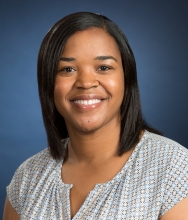BME Seminar Series (Zoom): Using Tissue Engineering Strategies for In Vitro Disease Modeling and Regeneration

Assistant Professor
Biomedical Engineering
Worcester Polytechnic Institute
Zoom: https://uci.zoom.us/s/97629106431 Password: 198Sem
Abstract: Tissue engineering strategies can be used to design in vitro models that capture complex changes in the tissue microenvironment in disease and regeneration. We are interested in fibrosis in these situations, since a fibrotic tissue microenvironment experiences significant extracellular matrix (ECM) remodeling that impacts disease progression and treatment, as well as healing during regeneration. This remodeling is dynamic and produces altered bulk and local biophysical properties (stiffness, microstructure, biodegradability). Yet, many preclinical in vitro models of disease or regeneration often lack features to reflect these spatiotemporal events. Our current focus is to control progressive stiffening and heterogeneity in ECM microstructure using natural biomaterials (e.g., methacrylated type I collagen, hyaluronic acid). For disease modeling, we concentrate on pancreatic ductal adenocarcinoma and lymphedema and the overall impact of temporal changes in ECM stiffness on invasive cell phenotypes, malignant transformation in cancer cells, and lymphatic capillary growth and function. Our foray into regeneration explores additive manufacturing to design platforms to investigate fundamental processes across diverse cell types during regeneration. With controlled manipulation of biomaterial properties, we aim to improve in vitro model design to increase our understanding of fibrosis in disease and regeneration for improved patient care.
Bio: Catherine F. Whittington is an assistant professor of biomedical engineering at Worcester Polytechnic Institute. Her group uses biomaterials to design engineered tissues for disease modeling and exploring mechanisms of regeneration. They focus on how spatiotemporal mechanical and microstructural changes associated with fibrosis contribute to disease progression (pancreatic cancer, lymphedema), as well as tissue growth and function. Whittington received a 2021 Pancreatic Cancer Action Network Career Development Award and was a Lilly Innovation Postdoctoral Fellow in Oncology at Eli Lilly and Company. She received her B.S. from Louisiana Tech University and Ph.D. from Purdue University, both in biomedical engineering.
Share
Upcoming Events
-
MSE 298 Seminar: New Platforms For Quantum Sensing and Quantum Computing
-
MAE 298 SEMINAR: Robustness of accelerated first-order optimization algorithms
-
CBE 298 Seminar (Zoom): Molecular Investigations Of Protein Interactions And Membrane Dynamics
-
CEE Distinguished Seminar Series Spring 2024 ”Origami Engineering”
-
E-SONIC: Engineering-Symphonic Orchestra New Instrument Competition
